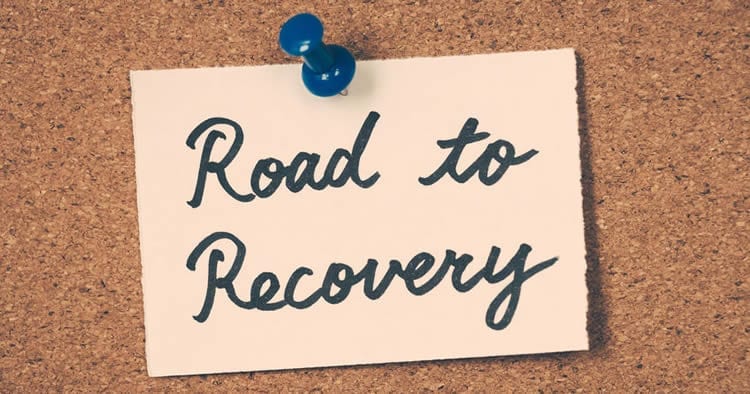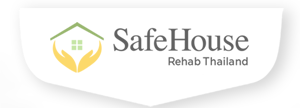Rehab Treatment Program
Rehab Treatment Program
The SafeHouse Rehab Treatment Program is a very wide term overused and underspecified. It does not do justice to The SafeHouse Rehab Centre model, which is an eclectic, proven, scientific, sympathetic and non-judgemental road map to exit dependency. Our alcohol addiction treatment program and our drug addiction treatment program will clearly and effectively show what can be done to stem the awful damage to the life of the addict and alcoholic, and those closest to them.
Just an Iota of Willingness is Required
An essential ingredient of any dependency and addiction treatment intervention is the client’s willingness to actively participate; if not total willingness, then partial willingness. If not partial willingness, then just an iota of open-mindedness to engage the rehab treatment program can be enough to get the ball rolling. A major and challenging psychological hurdle is the concept of abstinence (not using any alcohol or other drugs even for recreational purposes) during the treatment program. As perplexing as this idea is, it is a vital element in the process of understanding how we operate, and discovering the relationship we have with self, others and our substances. In reality, the fear of the detox (if required) is far worse than the detox itself, and the absolute requirement to remain drug-free through the entire rehab treatment program is not really such a big deal, because we take very good care of our clients.

A Chronic and Recurring Condition With Huge Fallout
Dependency and addiction is a chronic and recurring condition. The mere fact that you are reading this text indicates that you, or someone you want to help, are experiencing the severe and recurring impacts of substance abuse. Problematic drug and alcohol use will give rise to many serious concerns. There will include social, cultural, economic, physical, psychological and other health consequences. And the emotional fallout runs very deep in the abusers and those who love them. As such, any rehab treatment program for these conditions must adopt a range of physical, psychological and social/ environmental approaches, which must also be taken into the aftercare phase.
The abuse of alcohol and other drugs tends to shift our thinking and behaviours to unhelpful and self-destructive patterns. Often sex addiction and gambling addiction become supplementary symptomatic behaviours. The addict or alcoholics overall wellbeing is hugely compromised. This severely impacts emotions, expectations of self and others, and all life choices, causing isolation from families, friends and society.
Addiction is often used as a coping mechanism for compounding life stressors, low self-worth, anxiety, depression, and trauma. When our bodies have adapted to long-term substance use, it initially needs to be adjusted through detoxification, relaxation, exercise, sleep normalisation, and improved dietary habits.
Changes are Required – Our Treatment Program Can Help – Nobody is Hopeless
Important sustained behavioural and psychological changes need to take place for long term success. We start by looking at the history and consequences of using from the early ‘fun, social’ times, through to the long and slow (or just as often short and quick) descent into the current place of apparent helplessness and hopelessness. Our rehab treatment program quickly debunks that very myth. Nobody who walks through the SafeHouse doors is, in reality, helpless or hopeless.
The program takes a holistic approach to self-examination. There are multiple causal factors for dependency and addiction. The treatment process unearths those of the individual, and how these factors can both perpetuate and sabotage the client’s dependency and recovery. Our program will ensure that, if embraced, the dependence will be sabotaged, and the recovery will be perpetuated.
Rehab Treatment Program
The SafeHouse Rehab Treatment Program is a very wide term overused and underspecified. It does not do justice to The SafeHouse Rehab Centre model, which is an eclectic, proven, scientific, sympathetic and non-judgemental road map to exit dependency. Our alcohol addiction treatment program and our drug addiction treatment program will clearly and effectively show what can be done to stem the awful damage to the life of the addict and alcoholic, and those closest to them.
On-going Assessment and Planning
One of the primary tasks on entry into our rehab treatment program is a comprehensive assessment. It is an essential requirement for determining the most appropriate and effective treatment intervention for each individual. It provides a baseline of information from which clinically relevant responses will be tailored essentially and specifically for the individual’s benefit.
Assessment is not a single event, but rather an evolving process throughout the rehab treatment program. It identifies problems as they emerge. This way, assessment is on-going and endlessly reviewed by SafeHouse staff throughout the length of stay. In addition to a starting point for therapy, accurate assessments will determine motivational needs and provide detailed feedback to the client and their family.
CoMorbidity
Comorbidity (concurrent physical, mental health and substance use issues) is increasingly common among people seeking treatment. A range of strategies and considerations are presented for people who have associated co-morbid symptoms of depression, anxiety, psychosis, personality disorder, trauma, and anger/aggression. Agreed treatment planning will address and prioritise the most pressing needs, which may even include secondary sex addiction treatment and gambling addiction treatment if these are identifiable problems.
Motivational Counselling Sessions
Throughout assessment and on-going treatment, we will utilise motivational counselling interventions. These techniques are designed to enhance the willingness to change. Multiple interventions will include extended (60 minutes every two days)) and brief ad-hoc one to one counselling sessions. All this to understand what will prompt the addict to reduce or eliminate his or her substance use, and the most important elements that will inspire positive change. The aim of motivational interviewing is to increase awareness of the problems, consequences and risks faced as a result of behaviours inherent in drink and drug abuse. The main goals are to establish rapport, elicit change talk, and promote commitment language from the client. These are essential elements in the SafeHouse rehab treatment program.
Psycho-Education
Psycho-education is a specific element of the treatment which aims to help the person with dependency and addiction to clearly and concisely access the facts about a broad range of issues. Examples of materials used for psycho-education are books, information pamphlets, computer programs, targeted DVD documentaries and movies. These have been used as an adjunct to on-going face-to-face counselling and as a stand-alone intervention. SafeHouse will provide all the written and audio-visual aids required to engage the client and will assist and assess the client’s progress therewith. A key factor of this element of the rehab treatment program is linking the information with the addicts’ and alcoholics’ personal experiences. Psycho-education provides the opportunity for the development of a good therapeutic relationship and empathic response to the client’s story. It will encourage the personal exchange of experiences and stimulate hope and reassurance. It will thereby promote the trust identification and empathy that is necessary between client and counsellor.
Psycho-education reinforces the positive and healthy messages from SafeHouse Rehab Centre and educates and supports the value of treatment and therapy. It must be delivered in a timely and strategic way to maximise the positive effect on behaviour. It will ideally involve family or carers as appropriate, and if all parties are willing. SafeHouse will have facilities for online conference sessions if necessary.
Rehab Treatment Program
The SafeHouse Rehab Treatment Program is a very wide term overused and underspecified. It does not do justice to The SafeHouse Rehab Centre model, which is an eclectic, proven, scientific, sympathetic and non-judgemental road map to exit dependency. Our alcohol addiction treatment program and our drug addiction treatment program will clearly and effectively show what can be done to stem the awful damage to the life of the addict and alcoholic, and those closest to them.
Cognitive Behavioural Therapy (CBT) and Mindfulness
When drugs and alcohol are used in a problematic way, a major symptom is narrowed and focused behaviours toward the only things that really matter – drinking, using, and finding ways and means to continue doing so. The constant repetition that occurs leads people to over-emphasise the reality of the importance of using in their daily lives. This distorted view of the abuser’s existence will influence interpretations of daily situations and events. It will perpetuate the cycle of distress and problematic drug and alcohol use. The objective of including Cognitive Behavioural Therapy in the rehab treatment program is to identify and challenge the dysfunctional beliefs that maintain problematic patterns of thought and behaviour. In so doing we open the door to instil more adaptive beliefs and behaviours.
Delving deep into CBT too early in the overall therapy process before the client is ready can be counterproductive. We take a gentle initial approach through the CBT module known as ‘Acceptance/action and Commitment Therapy (ACT), before progressing to the highly effective CBT modules known as Moral Reconation Therapy (MRT), and Dialectical Behaviour Therapy (DBT) which are extremely effective in the specific field of dependence and it’s secondary symptoms.
A further essential element of the treatment package is an introduction to the various elements of Mindfulness, essentially the move towards peace, contentment and happiness. This is also approached gently through training, meditation and stress reduction techniques.
Mindfulness-Based Cognitive Therapy (MBCT), designed to aid the prevention of recurring depression, is also most relevant to help substance abusers. These and other manifestations of CBT will be an integral part of our rehab treatment program, as will Mindfulness-based stress reduction and relapse prevention techniques. Clearly, it is never too early to equip the recovering addict and alcoholic with stress reduction, depression prevention and relapse prevention techniques.
The Stepped Care Principle
Nevertheless, the SafeHouse rehab treatment program does not overload the client with ‘too much, too soon’. Stepped Care involves the provision of a series of interventions, from the least to the most intensive. Each incremental step is governed by the client‘s response to the previous one. A Stepped Care approach provides a best practice framework for integrating assessment, case formulation and treatment planning through the entire process. It will be used when deciding what level of intervention may be appropriate for a particular client. There can be no ‘rush’ to complete treatment. We take it very seriously! If our policy of Steeped Care means we must recommend a six-week rehab treatment program instead of four weeks, or three months instead of two, it is only for the client to have the very best prospects of leaving SafeHouse with everything needed to keep up the good work.
And How Does This All Come Together?
The SafeHouse daily treatment schedule includes extensive one-to-one counselling, thrice daily group therapy sessions, lectures with high client participation, written client input and regular staff and peer assessments of individuals’ progress. Attendance at self-help groups, excursions, exercise and complementary therapies complete the daily schedule.
The optimum and most effective group therapy sessions comprise 6 to 8 clients and 1 or 2 facilitators. We have designed our two group rooms each to accommodate up to 10 people and no more. We also have several one-to-one counselling rooms and conference areas when appropriate. We are totally set up to deliver the best possible rehab treatment program to between 12 and 16 clients.

Aftercare Options Planning
Discharge planning needs to be considered and managed from surprisingly early in the treatment program. The process of preparing the dependent person for the cessation of treatment includes on-going therapeutic and practical goals and appropriate session allocation. This requires a clear and collaborative approach to counselling and care planning, involving the client, the treatment director, the individual counsellor, as well as peer review and family input if appropriate. For further information visit our aftercare options page.
Our Rehab Treatment Program is Not Really So Hard!
Throughout your time at the SafeHouse Rehab Centre, you will have plenty of fun and relaxation. It’s not all hard work. It’s not a boot camp. It’s not a high-pressure crammer course for examination. It’s a well-paced and carefully considered program. We incorporate excursions, massages, hydrotherapy, light exercise and fitness program, swimming, introduction to meditation techniques and easy lakeside walks into the schedule. We want to remind our clients that life’s simple and healthy pleasures can be enjoyed without the use of substances. This would be something they have long forgotten. There could also be room towards the end of primary treatment for clients to undertake voluntary work with local charities and welfare organisations. While the recovering alcoholic or addict is helping others, he or she is unlikely to be negatively self-obsessed.
Addictions Must Not be Taken Lightly
Why do we place so much emphasis on the quality of the treatment program? Untreated drug and alcohol addictions lead only to institutions, degradation and deterioration, and death. There are no other outcomes and on the way they cause extreme pain and distress to the sufferer, their families, and their wider social and working circles. Imagine the ripples from a stone tossed in a lake. That is how addiction and alcoholism manifests in so many lives. It is a terrible curse. The chains must be broken and the sufferer must find a way out. Saving his or her life and sanity, and stopping the infectious damage and heartache is paramount. We take addictions extremely seriously at SafeHouse Rehab Center Thailand. We will do absolutely everything in our power to arrest the problem for good. It is, after all our Primary Purpose.

Call our UK Local Rate
+44 208 1448081

Call our USA Local Rate
+1 315 6366200

Call our AUS Local Rate
+61 280 915910

Call our TH Local Rate
+66 929 813813
